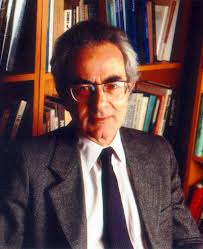In an earlier article we looked at The Mind Body problem (Mind & Body – Where do they begin and end). In it some philosophical ideas were suggested as to what the mind or consciousness might be. One of the ideas was ‘physicalism’, that is that the mind should merely be regarded as a thing that has various physical states, that we can observe and record and then by analysis of inputs and outputs we might achieve predictable physical responses. The mind is nothing more than a very complex computer or state machine”.
What Nagel is expressing in the above question is the discontent that many feel with current attempts to analyse our mental life and consciousness in these purely physical terms. As such his paper has almost become a totem for philosophers dissatisfied with those physicalist and reductive theories of mind.
The Bat Perspective
His central point is that there is a ‘subjective character of experience’ – something that it is to be a particular organism, something it is like for the organism – that is never captured in these reductive accounts. Take the case of a bat. Bats navigate and locate insects in complete darkness by a system of sonar, or echolocation, by emitting high-frequency squeaks and detecting their reflections as they bounce back from surrounding objects. This form of perception is completely unlike any sense that we possess, so it is reasonable to suppose that it is subjectively completely unlike anything we are able to experience. In effect, there are experiences that we as humans could never experience, even in principle; there are facts about experiences whose exact nature is quite beyond our comprehension. The essential incomprehensibility of these facts is due to their subjective nature – to the fact that they essentially embody a particular point of view.
Limitations in Physicalism
Physicalism is based on the idea that you can observe phenomina and then reduce it down to to component parts and interactions to then gain an insite of how and why things work as they do. Such scientific approaches helped us for example to analyse and deduce that water is composed of molecules of 2 parts Hydrogen and 1 part oxygen (H2O) or that lightning is actually an electrical discharge. Physicalists would maintain that these cases are similar to the way we should do analysis of mental phenomina ie in terms of physical phenomina.
However, Nagel makes the point that the very success of this scientific way of analysing things is based on moving towards greater objectivity by moving away from a subjective point of view; and it is precisely the omission of this element from physicalist theories of the mind that makes them incomplete and unsatisfactory. He concludes, “it is a mystery how the true character of experiences could be revealed in the physical operation of that organism”, which is all that science has to offer.
Can We Get Beyond Physicalism ?
Thomas Nagel leaves the argument at this point, seemingly OK with leaving the mind-body problem as a mystery. Other philosphers are not. So lets look at a thought exepiment to see if we can’t get beyond physicalism. Frank Jackson, an Austrian philsopher came up with a thought experiment entitled ‘Monochrome Mary’.
Monochrome Mary
From the moment of her birth Mary was confined in a black-and-white room, where she was never exposed to anything that was not black, white or shades of grey. Her education may have been unusual but was certainly not neglected, and by reading books (no colour books of course) and watching lectures on black-and-white television, she eventually became the world’s greatest scientist. She learnt literally everything there was to know (and could ever be known) about the physical nature of the world, about us and about our environment. Finally the day came when Mary was let out of her monochrome room and into the world outside. And what a shock she had! She saw colours for the first time. She learned what it was like to see red and blue and yellow. So, even though she knew every physical fact about colour, there were still things about colour that she didn’t know . . .
Moral: (1) there are some facts that are not physical; (2) be very careful how you pick your parents.
Committed physicalists are not, of course, persuaded by Jackson’s argument. Critics accept that there are facts that she didn’t know but deny that they are non-physical, others assert that they are not facts at all.
So Where Does That Leave Us ?
For my own point of view and whatever the strength of the arguments against Mary, it is hard not to feel that both Jackson and Nagel have put their finger on something – that something essential is missing from the versions of physicalism that have been proposed to date. It is perhaps safe to conclude that the issue of describing consciousness in a purely physical account of the world still has a long way to go to truely satisy what we feel to be right answer as to “What is the mind ?”.





You must be logged in to post a comment.